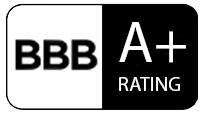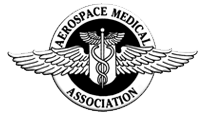Federal Air Surgeons Bulletin
What Is Acceptable and What Is Not
Warren S. Silberman, DO, MPH
AFTER ATTENDING MY FIRST, Aviation Medical Examiners (AME) theme seminar, it soon became obvious to me that AME’s would appreciate a comprehensive listing of medications that we in Aeromedical Certification consider acceptable for use in aviation. As a generalization, there are very few medications that we here do not ultimately accept. However, if a drug in a new category comes out on the market, we customarily wait one year to determine whether its use is appropriate. This allows an adequate side-effect profile to be established. Most of the medications that I shall mention can be found in the Guide for Aviation Medical Examiners, September 1996, edition.
The application of an airman who is on continuous treatment with: anticoagulants, antiviral agents, anxiolytics, barbiturates, chemotherapeutic agents, experimental drugs, hypoglycemic, investigational, mood-ameliorating, motion sickness, narcotics, sedating antihistaminic, sedative, steroid drugs, or tranquilizers must be deferred and sent in for approval to the FAA. Please note that many times the medical condition itself is disqualifying– even before the airman is placed on treatment.
We do permit the use of terfenadine (Seldane), astemizole (Hismanal), and the newer drugs Allegra and loratidine (Claritin) if the prescribing physician presents a note giving the indications, dose, and a statement that here are no adverse effects. It should be noted, however, that the Food and Drug Administration (FDA) has proposed the removal of terfenadine from the market.
Cetirizine (Zyrtec) is not permitted for airmen because it has label warnings regarding its sedative effects.
Note: If an airman mentions in block 17 of the Form 8500-8 that he/she is intermittently taking a sedating antihistamine drug (e.g. for allergies) he/she should also be disqualified or the application deferred. However, if the AME mentions in block 60 that the airman has been warned and will not take the medication within 12 hours of flying if the drug is short-acting and 24 hours if long-acting, we would accept its use. You all realize that these medications work best when they are taken on a regular basis during allergy season.
We do permit the use by pilots of the nonabsorbed steroid nasal and pulmonary inhalers for the treatment of allergic rhinitis and asthma. Make sure that we receive the required workup for asthma, as described on page 45 of the AME Guide.
As for treatment of hypertension, centrally acting agents such asguanethidine, guanadrel, guanabenz, methyldopa, and reserpine are usually not acceptable to the FAA.
Use of antibiotics is permissible, providing the airman has been on the drug for a long enough time (usually 48 hours) to rule out the possibility of side effects. Once again, the illness may be disqualifying, rather than the medication.
The use of prophylactic medications for the peptic ulcer illnesses, such as antacids, H-2 blockers, and sucralfate may be allowed, depending on the specific condition for which treatment is received.
Use of oral or repository contraceptives or hormonal replacement therapy is not disqualifying for flight duties.
Nonsteroidal anti-inflammatory drugs, such as ibuprofen or naproxenare acceptable, providing the airman has been using the medications long enough to determine a side-effect profile and that the underlying medical condition is not disqualifying.
| The use of psychotropic drugs is not permitted. This includes all analeptics, antidepressant drugs (including SSRI’s), antipsychotics, anxiolytics, and hallucinogens. Current FAA policy does not allow the use by airmen of Ritalin or Dexadrine for attention deficit disorder.
Editor’s Note: The FAA has revised this policy as follows: Pilots who take one of four (4) antidepressants – Celexa (Citalopram Hydrobromide), Lexapro (Escitalopram Oxalate), Prozac (Fluoxetine Hydrochloride), Zoloft (Sertraline Hydrochloride) may be considered by the FAA on a case by case basis only. |
Pills used for the treatment of exogenous obesity (e.g., Fenfluramine (Pondimin), Phentermine (Adipex), Dexfenfluramine (Redux), Orlistat (Xenical)) are generally sympathomimetic amines and, as such, arestimulants and usually not permitted for airmen. Sibutramine was only recently approved by the FDA for marketing and currently would not be considered for airmen. Dexfenfluramine and Fenfluramine, however, have been removed from the market by the FDA because of their apparent association with lunch and heart valve disease.
Airman using mood-altering medications, as mentioned above, should be deferred/denied certification.
Use of thyroid replacement therapy for the treatment of hyper- or hypothyroidism is not disqualifying, provided the airman appears clinically euthyroid pending receipt of confirmatory lab reports.
The key to success is to send as much information as possible so a quick decision can be made without having to ask the airman for more information. Recall that, according to the Code of Federal Regulations (§61.53), an airman is required to “ground” him/herself after developing a “known” disqualifying medical condition or being placed on an unacceptable medication.
Contact us at 405-787-0303 to confidentially discuss your FAA medical certification issues.



